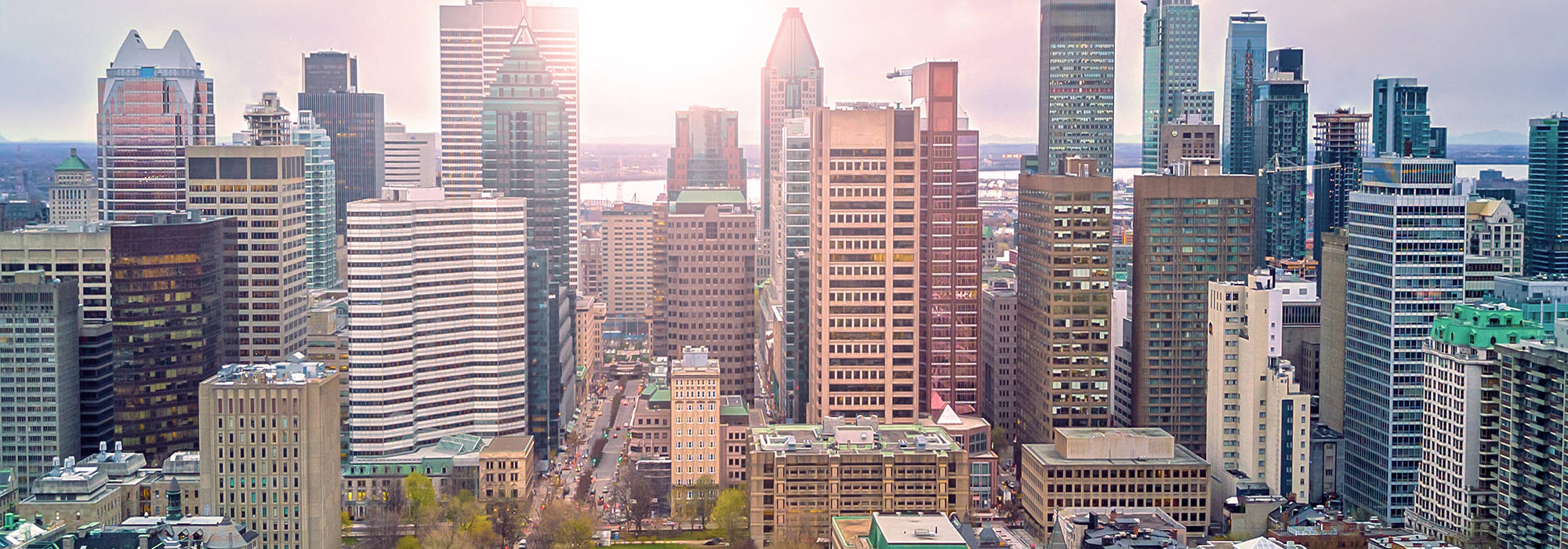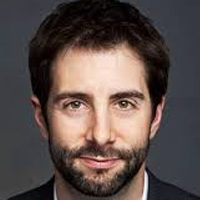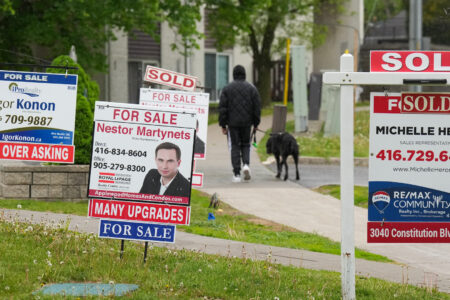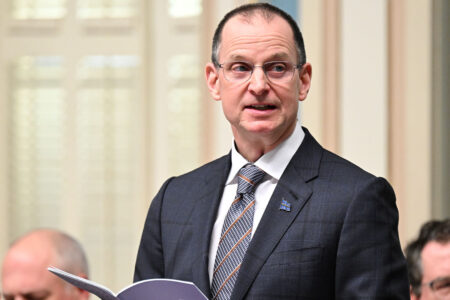
Far from being a land of forests, plains and prairies, Canada is an urban country. Nearly 70 percent of the population lives in urban centres and more than 90 percent of demographic growth is concentrated in those metropolitan areas. These proportions put Canada at the top of the world’s most urbanized nations.
And yet all of Canada’s cities, from Montreal to Toronto, Calgary and even Ottawa, are neglected by federal and provincial political parties. They are short-changed by electoral maps. All are forced by the provinces to labour under a tax system that dates from the horse-and-buggy age. All are relegated to the status of lowly “creatures” subject to the whims and dictates of higher levels of government.
It’s as if the country has not yet come to terms with the changes it has undergone since its founding.
“Cities do not exist under the Constitution, since it was drawn up in 1867 when we were a rural, agricultural country,” Calgary Mayor Naheed Nenshi pointed out when I interviewed him at City Hall. “But today the country is highly urbanized, a fact that, unfortunately, is not reflected in the relations higher levels of government maintain with the cities.”
The 2011 federal election offered a good example of this oversight. Every party targeted the “regions,” those wide-open spaces of rural and small-town Canada. The Conservatives’ slogan in French was “Notre région au pouvoir” [Our region in power]. The Liberals cited “rural Canada” as a priority but barely mentioned urban Canada. The Bloc used the slogan “Parlons régions” [Let’s talk about regions] but had no urban equivalent for the metropolis.
More critically, the parties felt compelled to appeal to voters in the regions by positioning themselves in opposition to the cities. The most glaring instance came during the French leaders’ debate, when Prime Minister Stephen Harper castigated Liberal Leader Michael Ignatieff over his promise to build a new Champlain Bridge. “I would not take Mr. Ignatieff’s approach and divert money from the regions to finance infrastructure for Montreal,” Harper said.
The Liberals were not much better. They pledged to develop a plan for public transportation but never specified what it would look like. They promised support for social housing but said they would take the money out of funds for urban infrastructure.
The reason for this is not rocket science. With the big-city vote so thoroughly predictable, the parties focus on rural areas or the suburbs where they believe their policies might swing votes. They rarely target the city centres.
At the provincial level, the situation is pretty much the same. In fact, the Quebec government was able to relieve Montreal of its “metropolis” title and its dedicated ministry nearly 10 years ago without raising eyebrows. Thus Montreal became just one “region” among all the rest: Administrative Region 06.
In the 2012 election in Quebec, Montreal did move up a notch. There was more discussion about the city. But since then, unfortunately, good intentions have been replaced by a charter of Quebec values, which has been broadly criticized in Montreal. Imposing it confirms the implicit trusteeship under which the government rules the metropolis.
But even more than urban centres elsewhere in the country, Quebec’s parties have limited reason to take an interest in the city. Montreal is either politically safe (for the provincial Liberals) or a lost cause (for the Parti Québécois). In short, Quebec is no different from other Canadian provinces in treating its major city like a big village that must be attended to, certainly, but not more than any other municipality. The cost of showing the city favour is to risk losing precious votes in rural areas.
But major cities are no longer the same municipalities they were in the past. Today, Montreal and Toronto are expected to compete with Paris and New York. They are expected to attract and hold onto businesses, court foreign creative talent, draw more private investment and deliver more and more services to residents, from social housing to public transportation. Providing support services for recent immigrants, developing the knowledge-based economy, building social housing, dealing with antigovernment demonstrations and adapting to climate change are all responsibilities that now fall to cities. They are nothing like the urban “creatures” of the 19th century.
Lucien Bouchard could not have been more clear when he said in his 1996 inauguration speech after being elected premier: “There can be no economic recovery in Quebec without a recovery in Quebec’s metropolis.” For once, it appeared the government of Quebec was going to recognize Montreal’s special character and grant it preferential treatment. “The complexity of the city’s problems calls for special treatment and even, I would say, for the creation of a specific metropolitan authority,” Bouchard continued.
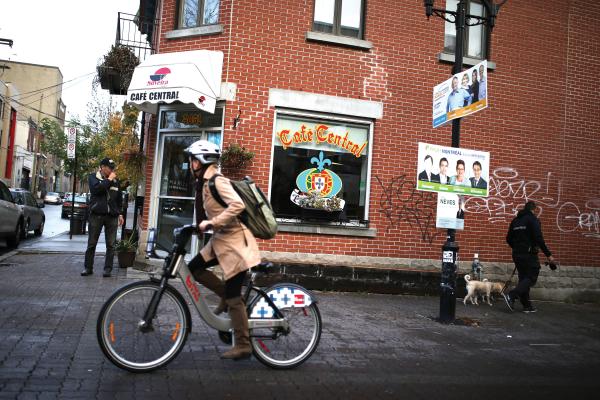
It seemed as if he was about to usher in an exciting new era. There was now a minister responsible for “the metropolis.” A development commission was set up for the Montreal metropolitan area and it was to be invested with significant powers. A true decentralization of power was in the offing. An economic development agency, Montréal International, was created at this time, as was the Agence métropolitaine de transport (AMT).
But just when it appeared Montreal was going to receive special attention and treatment, the government’s old habits returned with a vengeance. Like a parent who has given too much to one child, the Quebec government decided to restore the balance by giving to the regions with its left hand what it had given Montreal with its right. A local and regional development support policy was introduced in 1997. Then the Ministry of Regions was created and local development centres set up. A few months later, they added government measures for the province’s three metropolitan areas and then, finally, measures for all urban areas.
“The reforms demonstrate, once again, the government’s efforts to address Montreal’s specificity without neglecting the needs of the rest of Quebec,” political scientist Mariona Tomàs explained in her fine book Penser métropolitain? But the result was a government policy similar to the previous ones, an across-the-board approach based on a view of Quebec as a collection of communities, rather than a province organized around its main economic hub. “The government’s desire to maintain a territorial balance can be seen in the powers of metropolitan structures,” Tomàs observed. “The law provided the same types of powers for all the urban communities created in 1969, and then for all the metropolitan communities in 2000.”
Giving the rural Outaouais region the same powers as Greater Montreal reduces the latter to just one region among many. To this way of political thinking, the metropolis must not be allowed to overshadow any other town, must not be given too much. It cannot receive more attention than others, and cannot be elevated above any other.
Canada’s “hub cities,” those few major urban centres like Montreal, are the drivers of economic activity in the country. That was the conclusion of a recent Conference Board study, which pointed to the collateral benefits of a thriving metropolis. It found that strong growth in metropolitan areas spurs growth in neighbouring communities and then in the whole province.
But how can Montreal play its role as an economic driver if it is not treated as such?
We need only look outside the country to be convinced that we need to roll out the red carpet for the metropolis: to the United States, where big cities have the attention of the country’s leaders; to Asia, where the treatment of major centres sometimes borders on obsessiveness; or even to France, a country that, like Quebec, is marked by a deep divide between “the metropolis” and “the provinces.”
France provided a telling illustration of this awareness in early 2013, a few months after François Hollande’s Socialist government took office. Although France was in dire straits, burdened by crushing public debt and being forced to reconsider the fate of its precious social programs, Hollande did not think twice about launching a project of heroic proportions to relieve congestion in Paris. The price tag: the equivalent of $35 billion for a brand new “super metro,” plus $10 billion to extend and upgrade the existing system.
Was this completely crazy? On the contrary. Hollande was being logical and visionary. France understands the importance of investing in its metropolis. This is a country that is ready to look after its towns and villages, while not being afraid to give Paris preferential treatment.

“A strong Paris is in the interest of the provinces,” commented L’Express magazine in March 2013. Quite so. The article notes, for example, that much of the income generated in Paris is actually spent in the rest of the country. All financial roads — tourism, commuting for work, national redistribution, whatever — all lead to Paris, with benefits to the provinces. L’Express cites the case of Eurodisney to illustrate. Disney had hesitated before settling on building its amusement park in Paris — not between contending French cities, but between Paris and Barcelona. Herein lie the value and importance for the entire country of having a strong metropolis.
“Weakening Paris would slow France’s locomotive,” argued L’Express. “And in a train, the cars seldom move faster than the locomotive.”
Clearly, what Montreal needs is special treatment, more autonomy and more diverse sources of revenue. In short, it needs a premier who will stand on the balcony of City Hall and proclaim: “Vive Montréal! Vive Montréal libre!”
Worryingly, the current state of affairs in Montreal — the revelations and insinuations of political corruption and collusion — is prompting many observers to call for the Quebec government to take the opposite tack and tighten the city’s reins. According to this view, more provincial government involvement is needed to check the city’s propensity for vice.
But in fact the only way to make the city more responsible and more accountable is to give it greater power, wider latitude and more money. Montreal’s problem is that it has all the attributes of a metropolis but is treated as an ordinary municipality, subservient to the big boss, the provincial government. Its masters are the minister of municipal affairs, the minister’s colleagues at other departments involved in the city’s affairs and, of course, the premier. Montreal is under implicit trusteeship. This encourages, even promotes a lack of accountability on the part of the municipal administration, which is only half in charge.
“It’s not complicated: Montreal is currently a no man’s land of accountability,” says Denis Saint-Martin, political science professor at the Université de Montréal. “There is a political and organizational immaturity problem, which explains the political irresponsibility we have seen in recent years. Montreal needs more power, not less. Montreal needs to be more accountable, more answerable.”
Essentially, the metropolis needs to be treated like one, with the powers and revenues that go along with city status.
Montreal is a beggar riding in a limousine.
Invariably, after a municipal election, the incoming mayor announces a wish list and then gets the chauffeur to drive him up provincial Highway 20 to Quebec City to knock on the provincial government’s door with outstretched hands, hoping for a little largesse. Montreal’s mayor has to beg because the past offloading of responsibilities for delivering services to citizens onto the municipality has not been accompanied by new money.
“In Quebec, the province is responsible for much of the regulatory apparatus under which cities operate, which the cities feel restricts their autonomy,” said political scientist Laurence Bherer in 2004, speaking at the 50th anniversary of the Université Laval political science department. “And far from decreasing in recent years, provincial intervention has spread to a variety of areas such as the environment and public security, further relegating the cities to the role of operative rather than architect.”
It is unacceptable for the provincial government to be the “operator” of a metropolis. That is why municipalities are rightfully seeking greater autonomy and greater freedom of action from their provincial masters. This is what is starting to happen in other provinces: in Alberta, with its Municipal Government Act, with British Columbia’s Community Charter and especially in Ontario, with the City of Toronto Act, which reads in part: “The [Ontario Legislative] Assembly recognizes that the City of Toronto, as Ontario’s capital city, is an economic engine of Ontario and of Canada.”
The Ontario government appears to understand the special role Toronto plays in the wider economy. The City of Toronto Act goes on to say, “The Assembly recognizes that the City plays an important role in creating and supporting economic prosperity and a high quality of life for the people of Ontario [and] that the City is a government that is capable of exercising its powers in a responsible and accountable fashion.”
Quebec’s largest city deserves similar treatment: strict accountability in exchange for recognition of its status as an autonomous government and the ability to tap more diverse sources of revenue. Indeed the main reason Montreal is regularly forced to pass the hat in Quebec City is its heavy dependence on property taxes for its income. As a creature of the province, it still operates under the good-old British tax model that sees it derive the bulk of its revenues — 67 percent — from property taxes.
This was not a problem a hundred years ago, when Montreal provided only property services to its residents. But its responsibilities have expanded. The standards imposed by Quebec City have proliferated, and the portion of the budget allocated for services to individuals has grown considerably. Yet its tax base remains just as dependent on a single sector: real estate.
This situation has a huge drawback. The City does not share the economic benefits that it generates. It might well pour money into the Formula One Grand Prix and summer festivals, invest in attracting conventions and tourists, renovate public spaces to make the urban environment more attractive and friendly. But it will get not a penny back. On the contrary: these investments only increase the city’s expenses in maintenance, security and infrastructure, while the federal and provincial governments reap the sales taxes.
Take the city’s jazz festival. Montreal has to pay for security, site maintenance, public transportation to bring visitors to the site, and must deal with the event’s impact on traffic. In return, it gets happy festival-goers and tourists who spend money, stay at hotels, eat at restaurants — and fill provincial and federal coffers with sales tax revenues. They enrich the governments in Quebec City and in Ottawa, but not Montreal, which picks up the tab for the costs.
The result is that the hole into which large cities are quietly sinking gets deeper. Big-city economies are dematerializing. The knowledge-based economy, in which Montreal shines, is based on innovation, research and brains, not factories. But for now, grey matter is not subject to property tax. Add to the mix an aging population with more modest housing needs, the increase in teleworking, self-employment and e-commerce, and you have a Montreal that is not only under implicit administrative trusteeship but also in an increasingly precarious financial position.
And then people wonder why our metropolis is not playing the role it should be playing.
Photo: Shutterstock, by mat277
Do you have something to say about the article you just read? Be part of the Policy Options discussion, and send in your own submission. Here is a link on how to do it. | Souhaitez-vous réagir à cet article ? Joignez-vous aux débats d’Options politiques et soumettez-nous votre texte en suivant ces directives.



